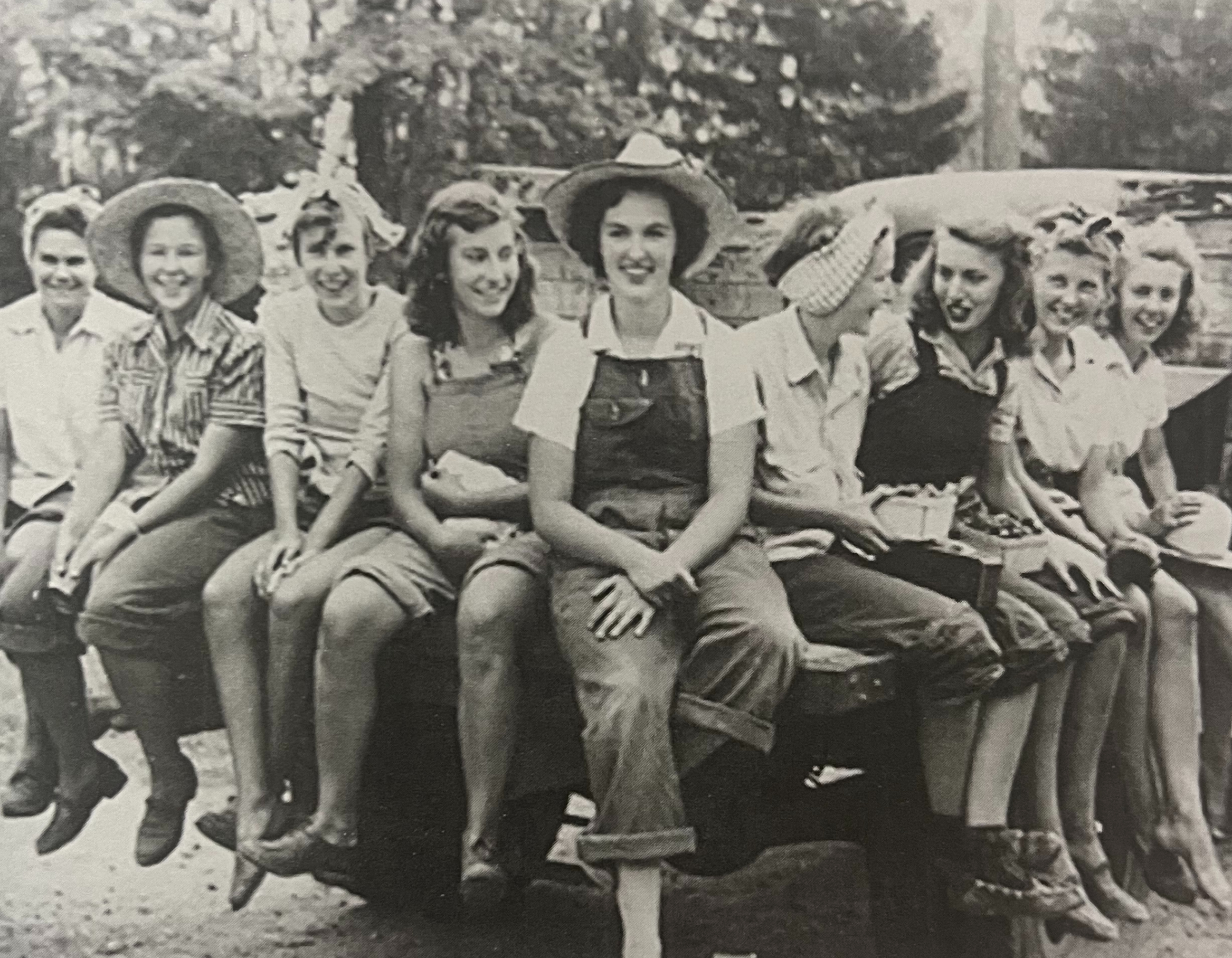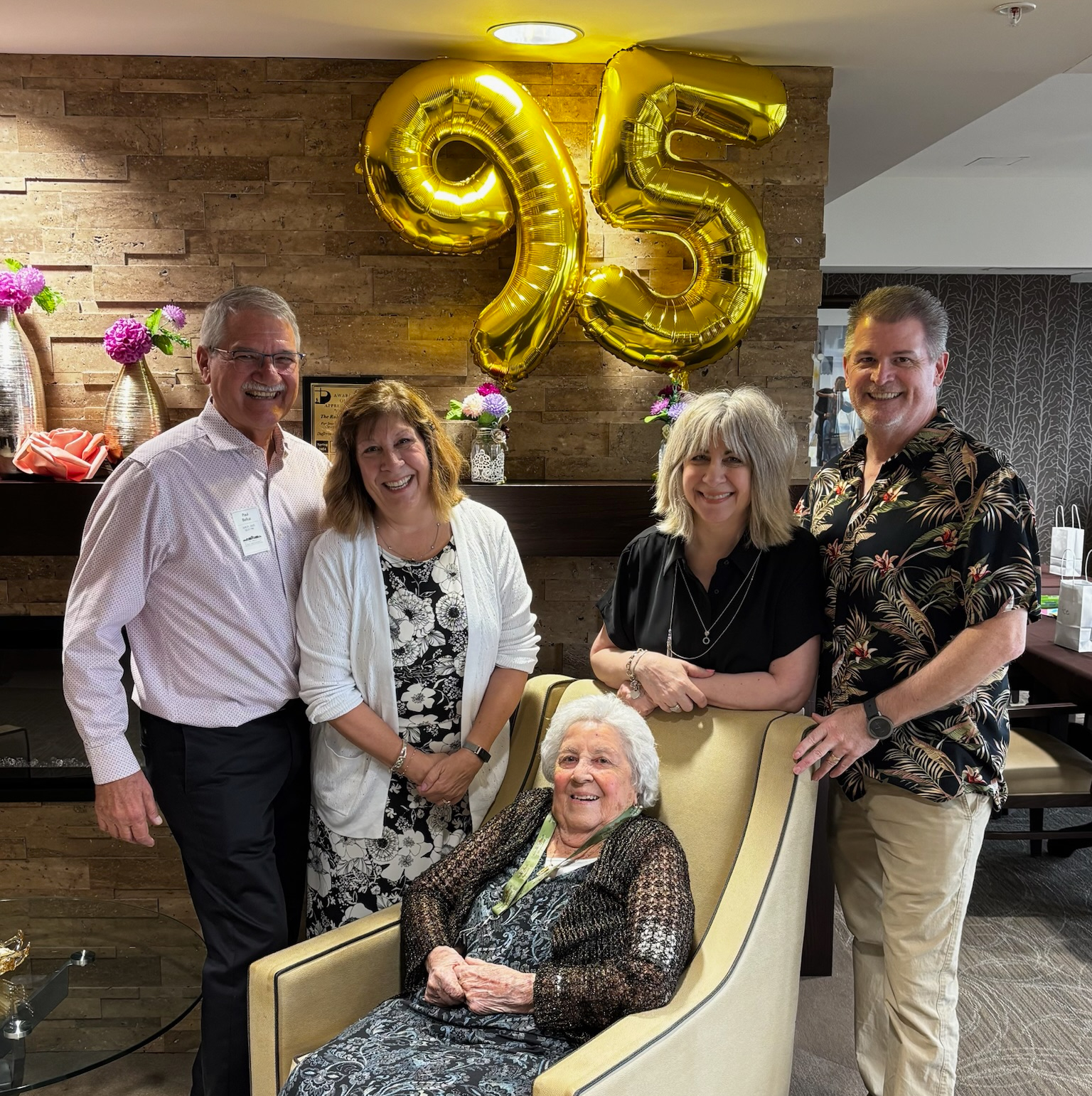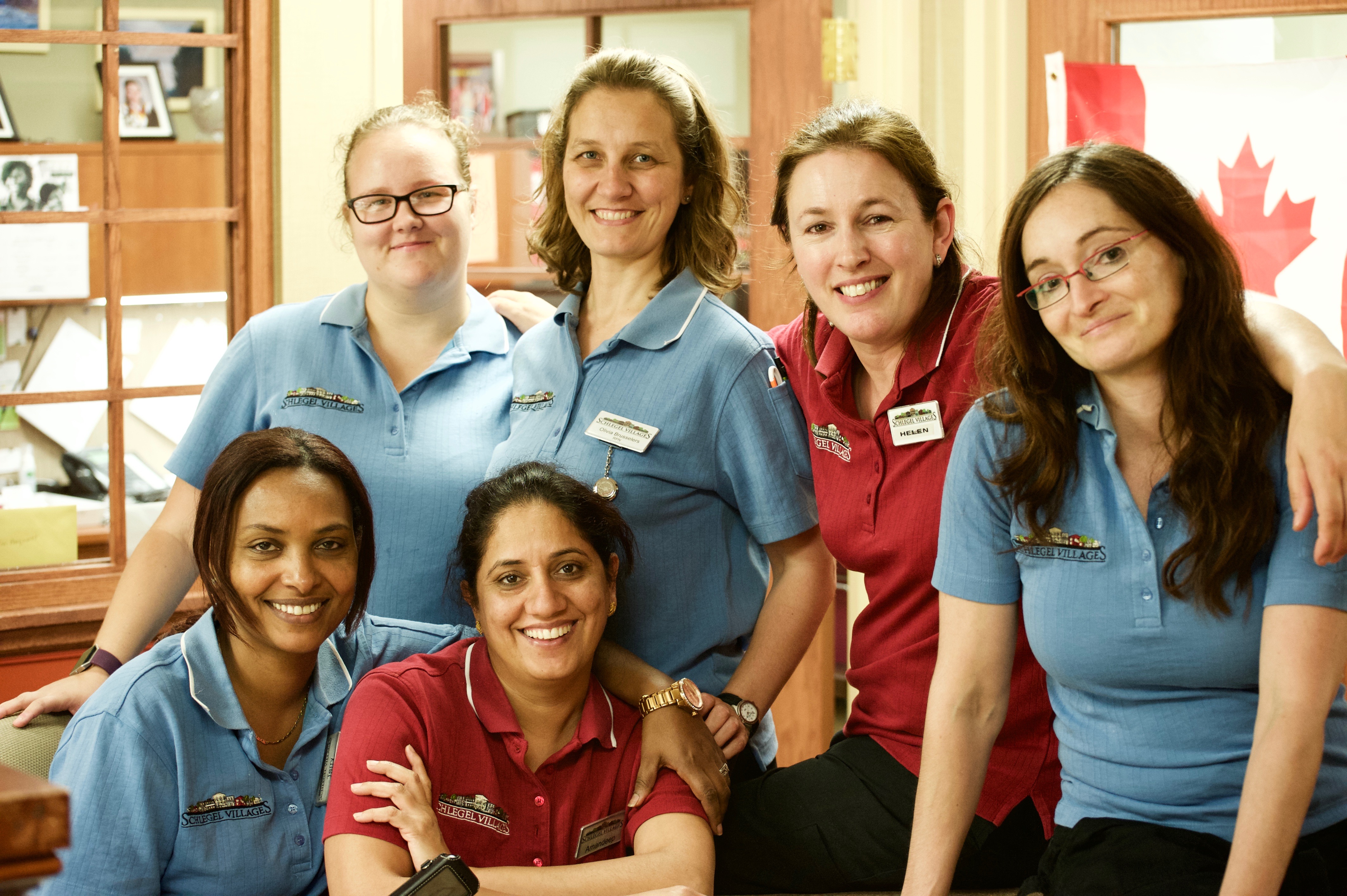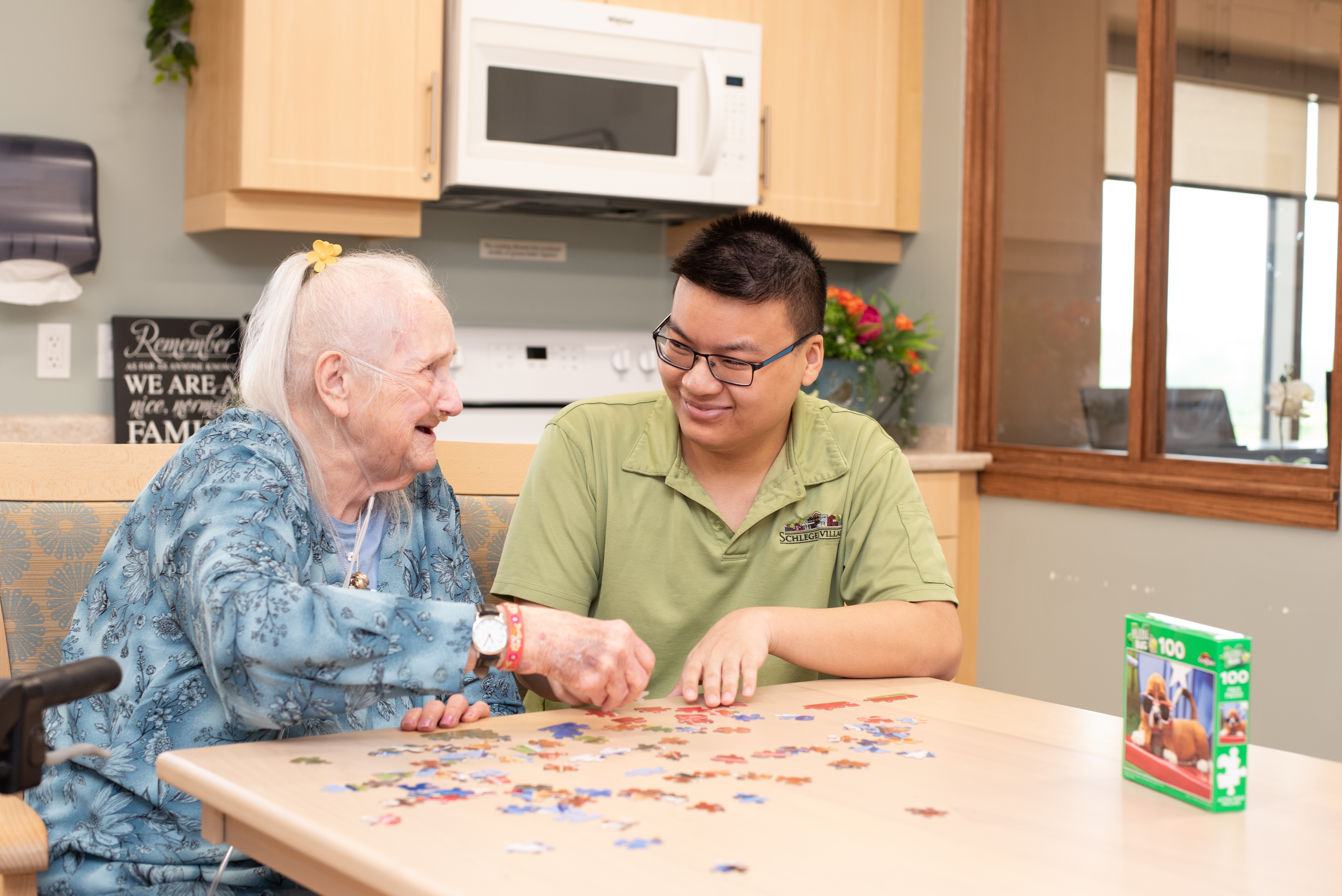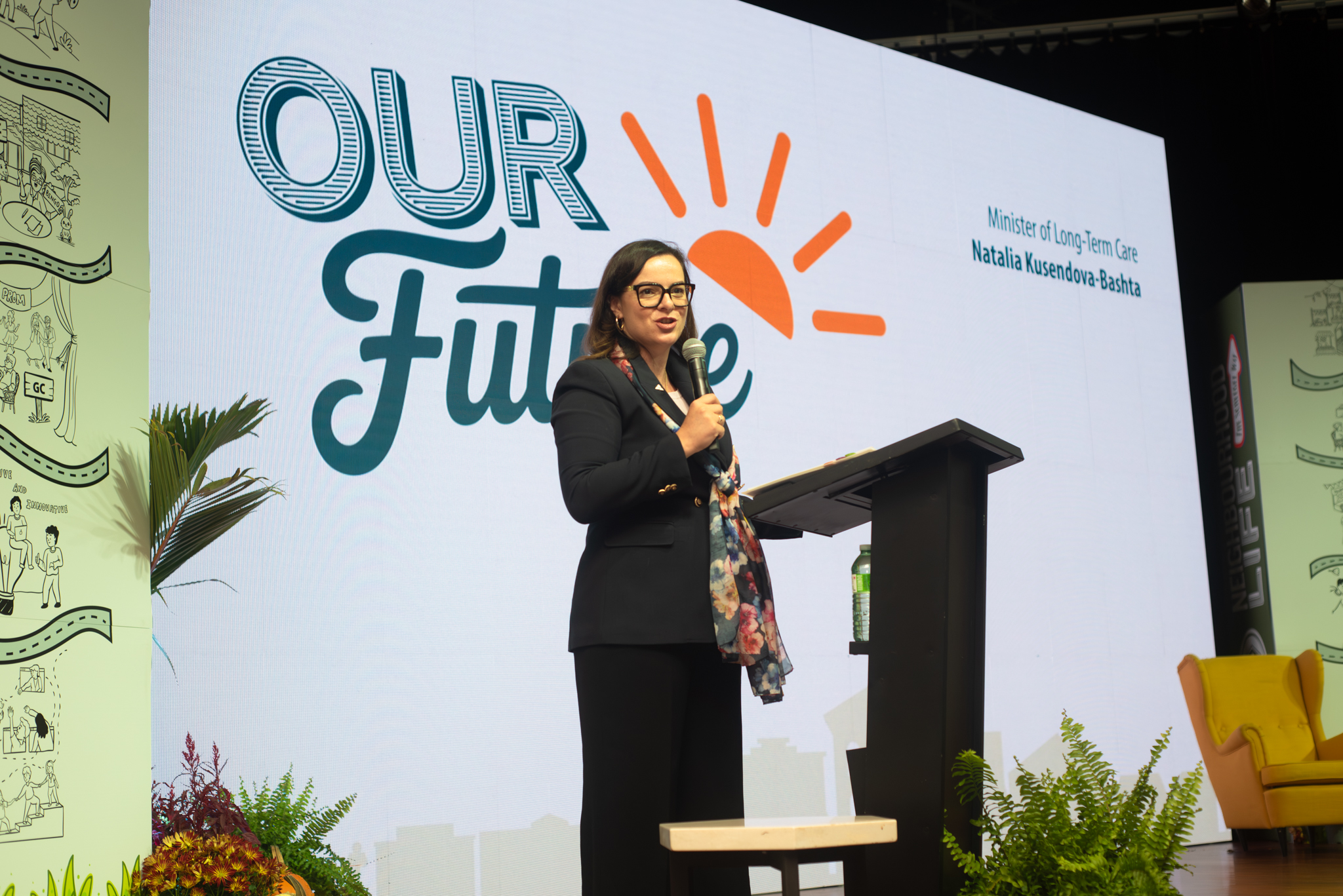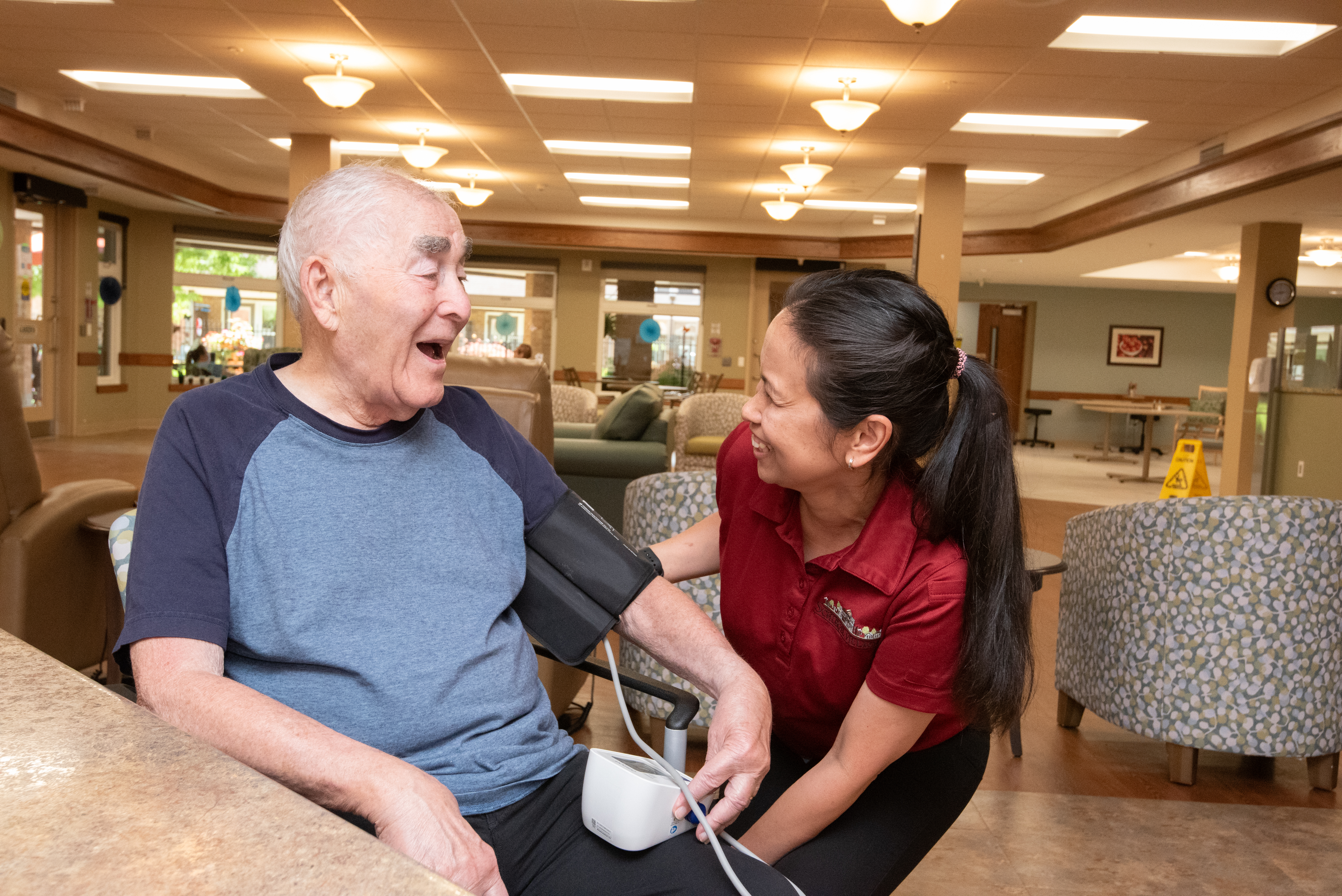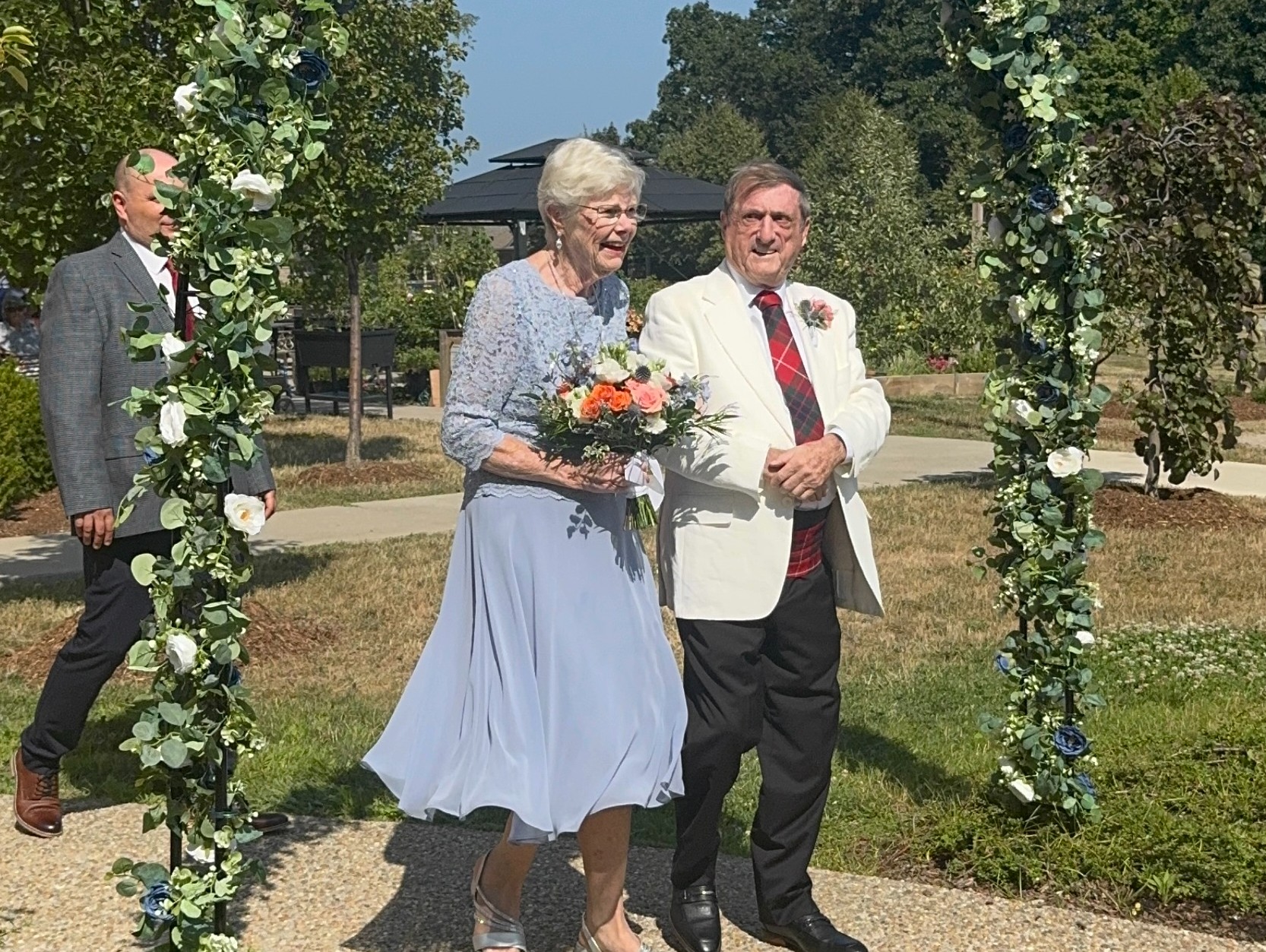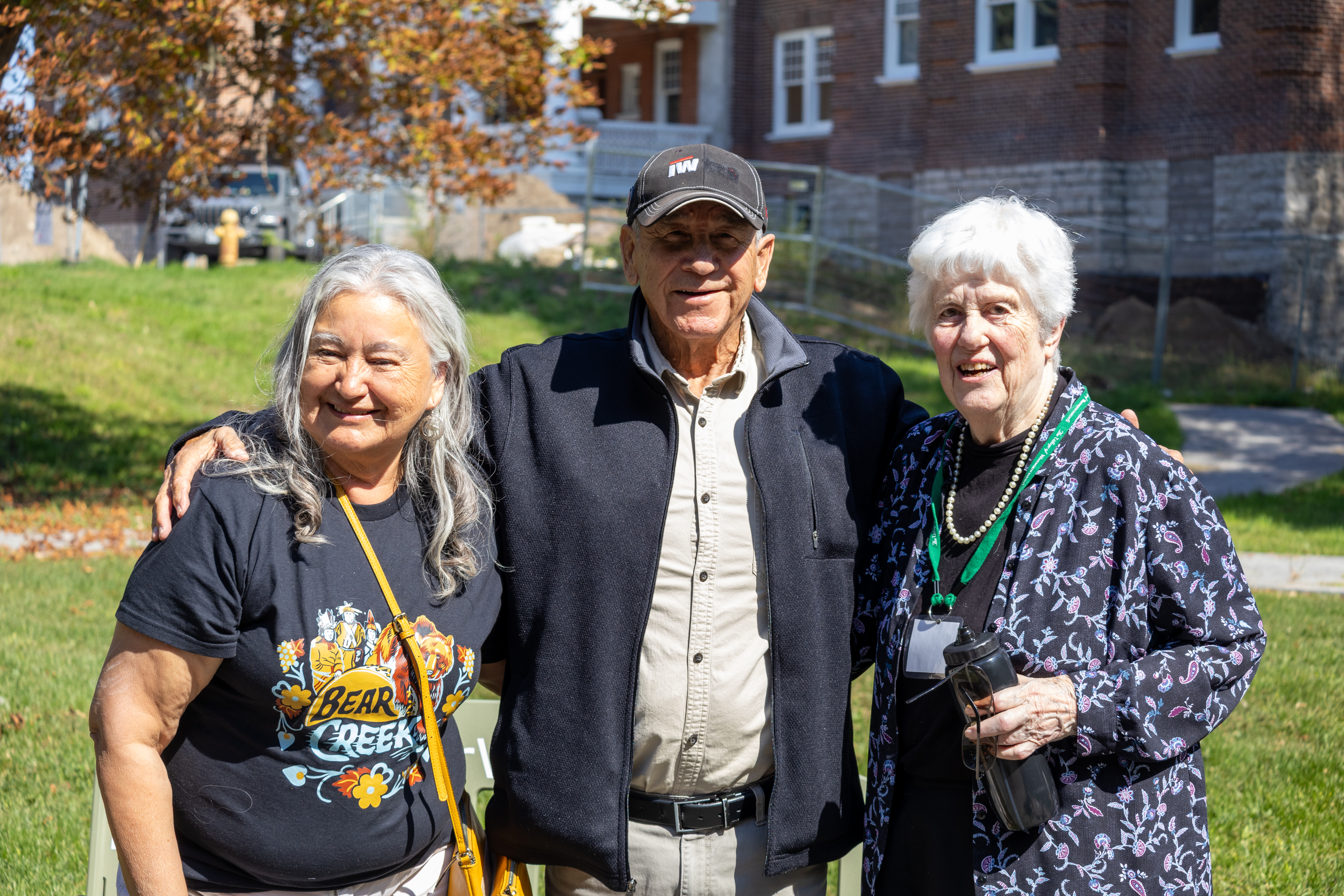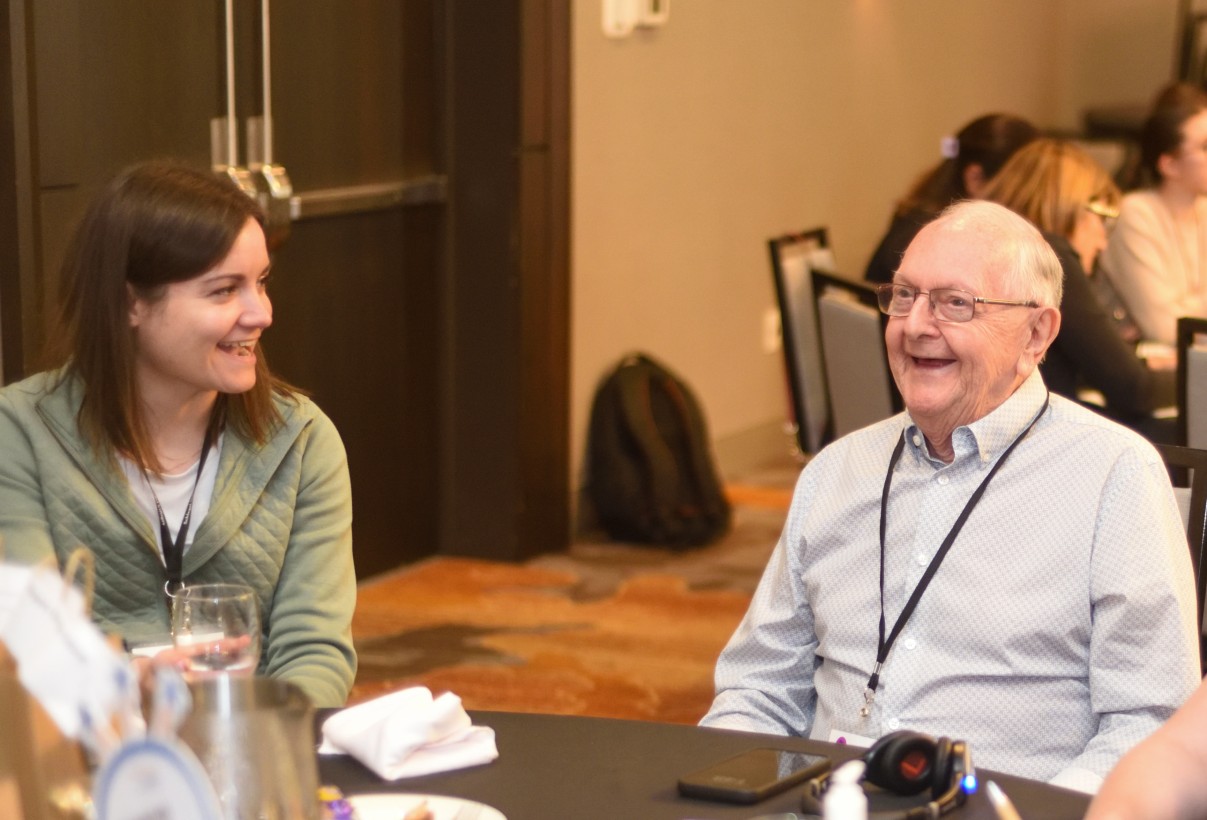Fairview Nursing Home’s investment in emotional well-being for its Team
As the autumn months of 2016 moved into the dark of winter at Fairview Nursing Home in Toronto’s west-end, the small community of 108 residents and the team that supports them suffered a series of losses. Each one compounded upon the other and by the end of December, in just three short months, 18 residents had passed away.
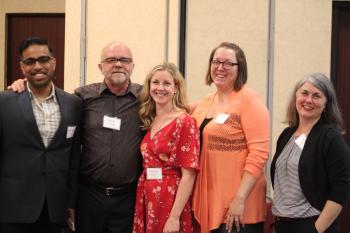
At the Schlegel Villages/RIA Innovation Summit in June, Saurabh
(far left), Crystal and Julie (far right) from Fariview Nursing Home
joined Tom and Becca of CAST Canada to share their experience
in addressing the emotional needs of team members in the home.
Some of the losses were expected while many others were not, and a great weight of sorrow hung over the home. Death and loss is a fact in the long-term care sector, but to lose close to 20 per cent of the residents in such a short time was a terrible burden upon everyone connected to the community – the direct care partners especially.
“There was an underlying stress in the building,” said general manger Saurabh Bhatagnar as he spoke about the experience and the team’s eventual response at the recent Innovation Summit in June, hosted by Schlegel Villages and the Schlegel-UW Research Institute for Aging. “There were emotions built up, there were emotions kept hidden and at one point in time we came together as a team and said we need to do something about this.”
The team connected with Tom Regehr and Becca Partington of CAST Canada, a small organization specializing in the reduction of human suffering among helping professionals. Their educational seminars and consultancy focus on trauma and loss and their impact on those who are close to these great challenges of life, and they offer language and tools people can use to address these burdens and move forward in a healthy way.
“We need to address these emotions and we need to be okay about crying at work,” Saurabh recalls the team thinking as they considered the climate in their home last fall. “It’s okay to talk about having vicarious trauma, it’s okay to talk about empathy loss,” they realized, “but how do we do it?
“We’re supposed to keep a brave face and keep going but at some point in time, when you go home with that baggage, it affects you,” Saurabh explained. “In my personal opinion, it causes me to really start questioning myself. Have I lost the ability to feel? Have I lost the ability to mourn and be open about it? Why do I have to be the general manager who’s saying ‘Ok, let’s move on,’ until the next one happens and the next one happens.
“We decided, ‘No! We’re going to open this up; we’re going to talk about this and we are going to identify this as an unmet need.”
That’s when they engaged CAST Canada and through a series of 10 intimate sessions in the early part of 2017 with 10 direct care partners from each shift on each neighbourhood, Tom and Becca offered space for the team members to discuss their feelings of loss and unresolved grief. Typically the seminars and conferences Cast Canada organizes are focused on the social service sector and the helping professionals who support those living in the shadow of addiction, mental health conditions, acquired brain injury and homelessness, Becca explained, so the Fairview experience was new terrain.
“This was a huge learning curve for us, and a very welcomed one, to sit with personal support workers and nursing teams,” Becca said. She and Tom quickly discovered that the emotional burdens carried by these team members are remarkably similar to those suffered by other helping professionals.
In the early sessions with team members, they spoke about the role of trauma, loss and unresolved grief in the lives of residents before discussing the same challenges among team members in the later sessions. The result was a sense of true validation among the team members and comfort in the fact that their emotional well-being was not only valued, but worth investing in.
“One of the things they don’t teach you in your training,” said recreation team member Crystal Hill as she considered the five years she spent as a PSW at Fairview before moving into recreation, “is how to deal with death.”
Such team members spend months, sometimes years, supporting people and growing close with them while watching their health decline as age or disease takes its toll.
“You’re hiding it,” Crystal says of those complex emotions. “You don’t want to show that emotion because you don’t want to scare the other residents, you don’t want to upset your other residents.”
The first time she lost a person she was close with, she locked herself away in the bathroom to cry quietly to herself. There has to be a better way, and this is why Fairview chose to explore what CAST Canada has to offer.
“What we really strive for is to help people identify their emotions and deal with them and allow this into a healthy workplace,” Tom said. When this can happen, a recommitment among the team to the oft-taxing responsibilities they have is opened and everyone’s life then has potential for more joy and meaning, even in the face of death and loss.
Please visit the CAST Canada website here for more information on their mission or contact becca@cast-canada.ca.
- Previous
- View All News
- Next
